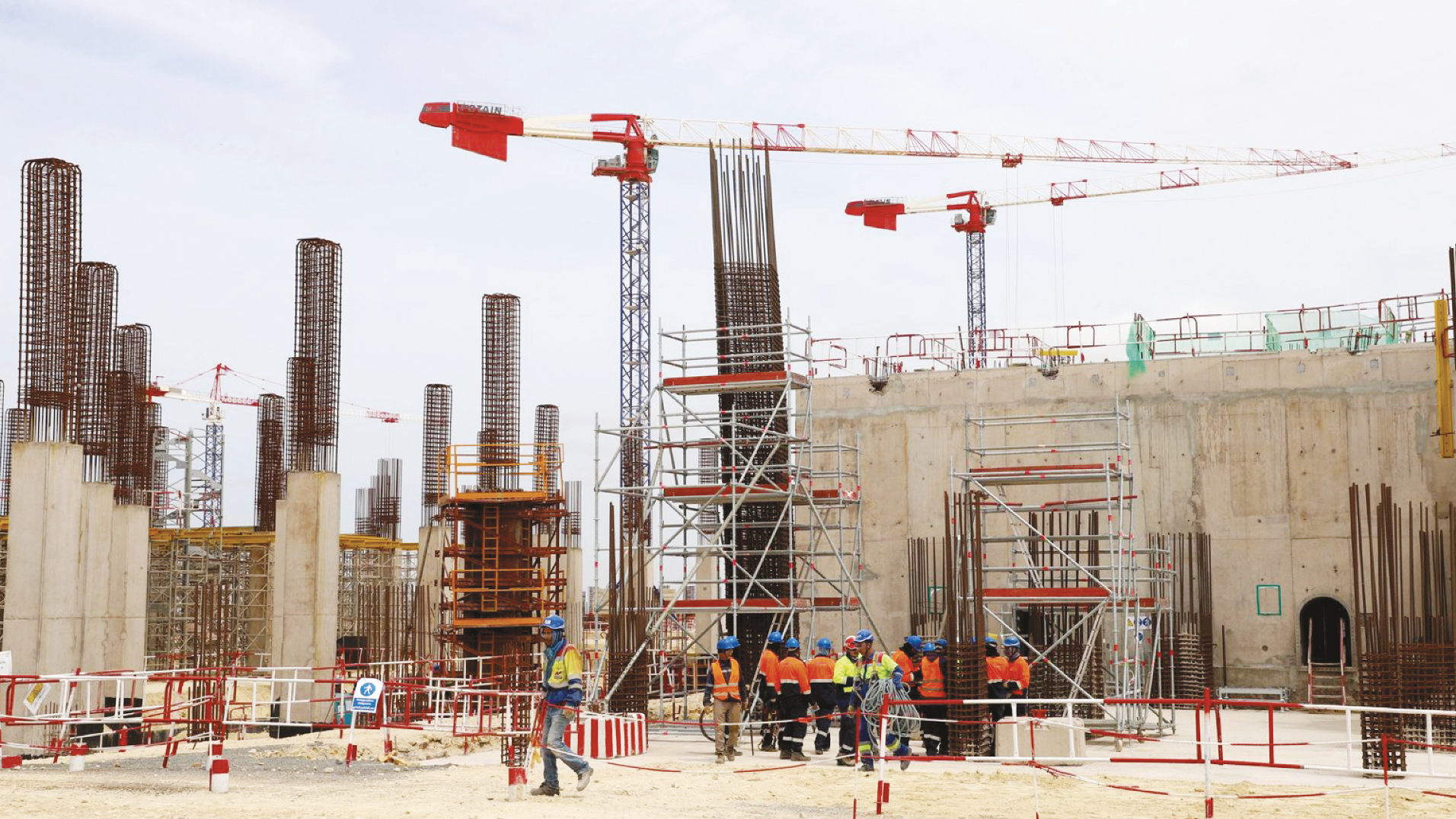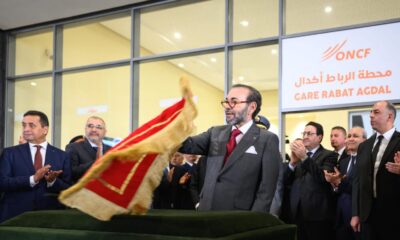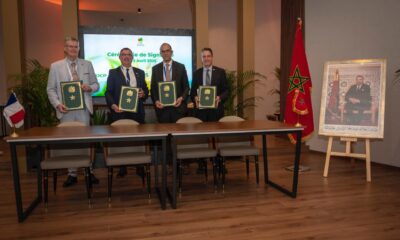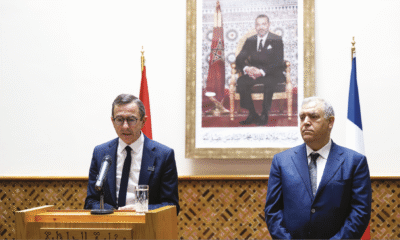Business
Mzinda-Meskala: OCP’s Bold Ambitions for 2028
Mzinda-Meskala Strategic Program (SP2M) by OCP: Driven by OCP Nutricrops, this initiative aims to boost phosphate fertilizer production to 9 MT (TSP, TSP+) by 2028. In Mzinda (Youssoufia Province) and Meskala (Essaouira Province), the state-of-the-art project will integrate AI, green energy, and local engagement, blending digital innovation, industrial growth, and environmental responsibility – fully aligned with the group’s sustainable vision.

Launched by the OCP Group in March 2023, the “Mzinda Meskala” Strategic Program (SP2M) is not merely an industrial milestone—it is a bold response to the 21st century’s global food challenges.
As the world leader in plant nutrition solutions and phosphate-based fertilizers, OCP, through its subsidiary OCP Nutricrops, aims to revolutionize phosphate and fertilizer production to support farmers, strengthen food sovereignty, and solidify its global leadership by 2028.
In Africa, where agricultural lands must sustain 2 billion people by 2050, SP2M stands as a catalyst for sustainable farming, driven by innovation and environmental responsibility.
Innovation
At the program’s core, Industry 5.0 is redefining production standards. In Mzinda, a 460-hectare complex is being equipped with cutting-edge technologies: artificial intelligence, advanced automation, electric autonomous vehicles, and a remote operations center (IROC). These tools ensure unmatched flexibility, cost leadership, and optimal fertilizer quality, such as TSP and TSP+.
“The first phase, starting in 2026, will produce 4.5 million tonnes of phosphate fertilizers from 1.5 million tonnes of phosphoric acid, with operations commencing in June 2026,” explains Ahmed M’Ssali, Director of the Sustainable Manufacturing Program.
SP2M ultimately targets 9 million tonnes of exportable fertilizers by 2028, alongside increased phosphate rock production. A multimodal corridor—featuring pipelines, slurry lines, and roads—will connect Mzinda and Meskala to the new Safi port, optimizing the transport of raw phosphate and finished products. By 2030, the Meskala hub will complete this chain with a chemical platform, ensuring seamless industrial resilience.
Through a greenfield project, OCP is deploying a standardized digital architecture, integrating predictive maintenance and inventory management for streamlined, secure operations.
Sustainability
SP2M places sustainability at its heart. In Mzinda, the complex will process 6 million tonnes of phosphate rock starting in 2026, sourced from mines in Benguerir, Youssoufia, and the future Louta mine in Meskala.
Since June 2024, construction has progressed steadily, with 15–30% completion, adhering to the 2026 timeline. What sets SP2M apart, however, is its environmental footprint. “We are building a zero-emission, zero-waste industry,” declares M’Ssali.
The site will operate entirely on renewable energy: 440 MW of solar parks in Benguerir and 195 MW of cogeneration from sulfuric acid units will power the complex and its infrastructure. Water, a critical resource, will come from non-conventional sources: a desalination plant in Safi will supply 200 million m³ by 2027 via pipeline, while treated wastewater from Marrakech, Benguerir, and Youssoufia will be recycled.
“No liquid or solid waste will be discharged,” M’Ssali emphasizes. Valorizing by-products (phosphogypsum, fluorine) and carbon capture (CCUS) propel OCP toward carbon neutrality for Scopes 1 and 2 by 2030, and full neutrality by 2040.
Local dynamism
Beyond industry, SP2M fosters a dynamic local ecosystem. Currently, 4,000 jobs drive activity at the Mzinda site, with a target of 60–65% local workforce participation. “An industrial zone will host partners, and tailored training programs will align skills with project needs,” emphasizes M’Ssali. Ultimately, 14,000 to 20,000 jobs will be created, engaging 40 national contractors.
The Mzinda Green Park will attract SMEs and industrial players, while partnerships with UM6P, INNOVX, and JESA will upskill a new generation.
OCP invests in communities through agricultural, artisanal, educational, and healthcare infrastructure projects. Innovations like green hydrogen and fluorine production will unlock economic opportunities, anchoring SP2M in the regional fabric.
Mission
SP2M addresses a colossal challenge: feeding 9.7 billion people by 2050, including 2 billion in Africa—where arable land per capita will decline by 21% and fertilizer use remains at just 12 kg per hectare, compared to 120 kg globally.
With 54% of applied nitrogen lost globally and soils deficient in phosphorus, sustainable agriculture demands precise solutions. OCP responds with its 4R approach (Right Fertilizer, Right Time, Right Rate, Right Place), powered by TSP/TSP+ fertilizers.
“Mzinda-Meskala advances food sovereignty, particularly in Africa, by empowering farmers to produce more and better amid rising demand for animal protein,” states Amine Debagh, Sales Director for Western Europe.
In synergy with OCP Nutricrops, SP2M aims to bridge Africa’s fertilizer gap, boosting yields without compromising soil health. At Mzinda and Meskala, OCP is building more than an industrial complex—a blueprint for the future.
Through SP2M, combining Industry 5.0, rigorous sustainability, and local dynamism, the group envisions Mzinda-Meskala as a symbol of excellence. By 2028, this initiative will advance sustainable agriculture while safeguarding the environment, cementing Morocco’s leadership in green, inclusive farming.












